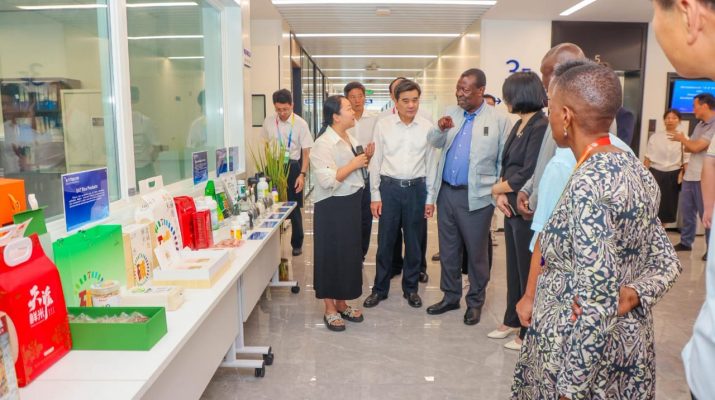By Laura Nyabang’a
Kenya has the potential to triple its rice yields in a single season, through the right seed varieties, improved agronomic practices, and strategic fertilizer use, significantly enhancing our food security.
While visiting the Hunan Hybrid Rice Research Center at the Hunan Academy of Agricultural Sciences (HUNAAS) in Mapoling, Changsha City, PSC Musalia Mudavadi witnessed firsthand how China has transformed its rice production through innovation and research.
Established in 1984 by Academician Yuan Longping, the legendary “Father of Hybrid Rice”, HUNAAS continues to develop high-yield, high-quality, and resilient rice varieties. Their groundbreaking work has achieved yields of over 18 tonnes per hectare.
“There’s much Kenya can learn from this success as we strengthen partnerships and pursue sustainable agricultural solutions,” stated PSC Musalia Mudavadi.
The advantages of hybrid rice are precisely what Kenya needs to unlock its agricultural potential.
Beyond the impressive 15-20% yield increase over conventional varieties, hybrid strains offer enhanced resilience to pests, diseases, and environmental stressors, including saline soils.
Crucially for climate-conscious agriculture, their shorter growth durations reduce the period of field flooding, significantly cutting methane emissions.
Moreover, improved nitrogen-use efficiency minimizes the need for excessive fertilizer application, contributing to a more sustainable farming model.
The labour-intensive nature of hybrid seed multiplication also holds the promise of creating much-needed rural employment and boosting income generation.

